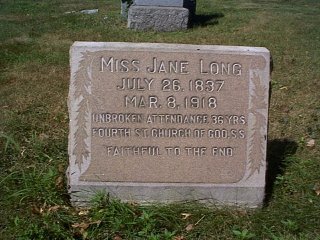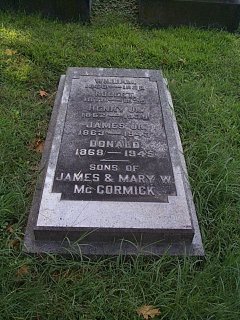(This essay was originally written for On Display, an online journal collab – that is, a collaborative effort – that provided a topic suggestion every month. This was in response to the prompt to create a national holiday for August.)
August 30, 2000
Wednesday
There’s one kind favor I’ll ask of you.
See that my grave is kept clean.
              — Blind Lemon Jefferson, 1893-1929
                  American blues singer and guitarist
Every cemetery has at least one, a gravesite created in the rush of emotion following a death, marked with an elaborate monument bearing the deceased’s name, dates, accomplishments, and words from scripture or the great poets about sleep and rest and reward and what endures forever.
As the years go by and those who created the memorial themselves die off, the number of visitors dwindles, no one any longer places seasonal decorations, and the plot becomes one more area tended only by the maintenance staff who mow the grass close to the ground but neither trim nor edge.
Over time, such a plot takes on a weedy look, a vacancy of aspect, an absence of the strange vitality that animates so many of the residences in these cities of stone.

At left is a picture of one such plot in the Harrisburg Cemetery, a splendid example of the “rural cemetery†movement of the nineteenth century. Miss Jane Long rests at the edge of the wide main carriage path that circles the rolling acreage. An iron fence overgrown with a thick yew hedge stands between the path and the city neighborhood it borders.. The hedge muffles the sounds of life that emanate from the modest row homes along Fifteenth Street– basketball, weekend car repair, children at play.
 And at right is the reason I came to this particular facility seeking what cemetery visits give me. I came to honor William McCormick, son of a wealthy city family who died without issue after a distinguished career as a newspaper man known for his charity toward homeless boys. I have loved him for five years, since his letters home from his first job after Yale provided me my first publishing success.
And at right is the reason I came to this particular facility seeking what cemetery visits give me. I came to honor William McCormick, son of a wealthy city family who died without issue after a distinguished career as a newspaper man known for his charity toward homeless boys. I have loved him for five years, since his letters home from his first job after Yale provided me my first publishing success.
The wide table stone commemorating William and his brothers rises a foot above the grassy surface. After all these years it still shines in the dappled light that penetrates the thick oak overhanging the McCormick plot. But the small foot stone with his initials which lies along the curb is overgrown with fescue spikes.
I need to come back soon with flowers for William and Miss Jane, pruning shears and maybe some liquid Ajax and a brush. I need to do one kind favor for these two souls who, but for me, are never called to mind.
I think in late August, as colors fade and the first hints of autumn bring thoughts of our own mortality, we should each visit a neglected or forgotten gravesite. Trim back the weeds, place a fresh pot of mums still in tight bud, and speak aloud the name of someone gone, but not yet forgotten.